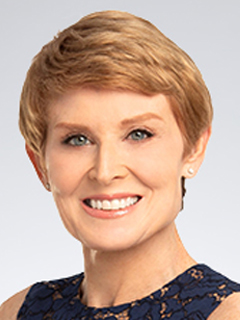Sticky inflation
Consumer prices remain high with some moderation.

The Consumer Price Index (CPI) rose 0.4% in February after increasing 0.5% in January. Prices at the gas pump moved up slightly during the month but receded as we moved into late February and early March. Food prices moderated a bit with egg prices, which skyrocketed in January more than 70% from a year ago, finally showing some signs of cooling. Eggs are a critical protein and suffered from the culling of chicken stocks due to a global bird flu outbreak.
The CPI cooled to a 6% year-over-year gain from a 6.4% gain in January. A sharp jump in energy prices a year ago, as Russia built troops and eventually invaded Ukraine on February 24, 2022, made for easier year-on-year comparisons.
Core CPI, which excludes the food and energy components, rose by 0.5% in February, slightly stronger than the 0.4% pace in January. The core CPI slowed to a 5% year-over-year pace from a 5.6% pace in January. Again, a surge in inflation a year ago aided in suppressing year-on-year comparisons. The key issue for the Federal Reserve is the momentum in inflation, which remains elevated.
Those gains occurred despite some signs of cooling wages and reflect the surge in demand triggered by the sheer magnitude of paychecks we generated during the month. This is consistent with the results of the KPMG Insights on Inflation survey, which showed that demand supplanted supply side issues in determining prices in the first quarter.
Retail sales in January rebounded sharply on a surge in new payrolls and the largest bump in Social Security payments in history. Data on retail sales for February are due out tomorrow and look once again poised to surprise on the upside. Apparel prices price rose at an 0.8% pace in February, the same as January. Women’s apparel drove those gains. However, men’s underwear, nightwear and swimwear continued their upward climb. I am still holding out that swimwear drove those gains given ongoing strength in vacations during the month.
The ranks of those out on vacation in February edged down from January levels but were still the second highest for February on record, while TSA throughput data exceeded the levels of 2019 many days during the month. We reached an important tipping point in recent months, where record numbers of those unable to work due to vacation are finally exceeding those unable to work due to illness.
Airfares rose during the month, reflecting the ongoing demand for revenge travel and some return of business travel. The CPI and the personal consumption expenditures (PCE) measures of inflation, which the Fed targets, measure airfare differently. The CPI looks at a sampling of fares across different routes, while the PCE tracks air revenues per mile traveled. Those two measures went in opposite directions in January but look to be converging for February.
Shelter costs remained elevated in February, despite some softening of rents and home prices. The lags on those shifts are quite substantial, given how slowly leases are renewed. Hotel room rates continued to gain ground.
Goods prices, which the Fed was betting would recede more rapidly, held up during the month. Prices of new vehicles and big-ticket household furniture and appliances all rose. Used vehicle prices fell but that drop will be short-lived. A dearth of vehicles rotating off lease from two years ago, coupled with a surge in demand for cheaper vehicles, has depleted inventories. Wholesale auction prices on used vehicles, which tend to lead dealer prices by two to three months, surged in both January and February. Brace for those hikes in March.
Core services excluding shelter and energy services, which the Fed has increasingly focused on, rose 0.5% in February, up a tick from the 0.4% pace of January. That is the wrong direction for the Fed, which is looking for a cooling of service sector inflation. Inflation in the service sector is starting to look sticky. Year-over-year gains in super core services slowed slightly to 6.1% from 6.2% in January. A rise in prices a year ago tempered the year-on-year comparison.
Medical costs fell during the month. That reflects a quirk in the way that medical insurance is calculated in the CPI. A different measure, which has been running hotter, is used for the PCE index of inflation. Hospital costs slowed after accelerating in January; nursing home costs also moderated but the pace of gains remains elevated.
Vehicle insurance and maintenance costs slowed during the month but remain highly inflationary. Both are up at a double-digit pace from a year ago. This is a category I am intimately familiar with after hitting an inanimate object with my vehicle.
Skittish Fed
A week ago, the persistence of service sector inflation and the surge in employment we saw during the first two months of the year would have prompted the Fed to raise rates by a half percent at its March 21-22 meeting. Chairman Jay Powell was clearly close to doing just that when he testified to Congress last week.
Recent developments in the banking sector have shifted that calculus. Credit conditions at large, regional banks are expected to tighten further, despite efforts by regulators to stabilize financial market conditions. That will crimp growth in firms with less than 250 employees, which are the primary driver of current employment gains.
In response, the Fed is likely to take a hawkish pause at its meeting next week as it reassesses where the economy is. We have long argued that the one thing that would stop the Fed from raising rates was a crisis. If the current crisis proves transitory, the Fed will resume rate hikes. Otherwise, we may be in for a harder landing.
The Bottom Line:
Inflation remains stubbornly high. The Fed will not hesitate to raise rates to fight more persistent inflation. A pause in rate hikes, with the option to resume hiking should the current situation in the banking sector prove transitory, is the path of least resistance. The Fed meets in less than a week; that seems an eternity in this economy; much could change between now and then.
The Fed is likely to take a hawkish pause at its meeting next week.
Explore more
Meet our team

Subscribe to insights from KPMG Economics
KPMG Economics distributes a wide selection of insight and analysis to help businesses make informed decisions.
